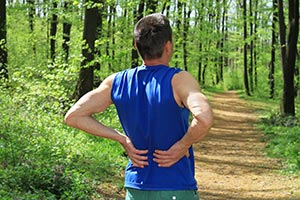 According to the World Health Organization, falls are the second leading cause of accidental injury deaths worldwide. Falling disproportionately impacts adults age 65 and older, and can lead to serious injury, further health problems, decreased quality of life, and a loss of independence.
According to the World Health Organization, falls are the second leading cause of accidental injury deaths worldwide. Falling disproportionately impacts adults age 65 and older, and can lead to serious injury, further health problems, decreased quality of life, and a loss of independence.
But most falls can be prevented. Here are some ways to minimize your risk:
In the Home:
No matter your age, it's important to fall-proof your surroundings so you can cruise around comfortably at home.
Since most falls happen at home, there's a lot you can do to make your home safer.
- Secure rugs and floor coverings with rubber backing or double sided tape; use mats or rugs to improve slick surfaces.
- Be sure all railings and banisters are secure, and install extra guard rails (including bed rails or bathroom grab bars) if necessary.
- Make sure there is adequate lighting throughout your home. Use motion sensitive lights or night lights in any areas you may walk through when it's dark.
- Arrange your furniture so that it's easy to get around. Be sure nothing is obstructing any doors or natural pathways.
- Fix anything in your home that may create a safety hazard, like a broken stair, unruly electrical cords, or a wobbly table.
- Keep your home neat and clean, and doors and stairways free of clutter.
Outside the Home:
Weather can create some of the most hazardous conditions for falls around the home. Here are some easy fixes:
- Regularly clear your sidewalks, entrances, stairs and driveway of snow, ice and other outdoor debris.
- Use salt on icy walkways.
- Install good quality lighting that's easy to turn on when you need it.
- Make sure all stairs and ramps have handrails and good traction.
Stay Healthy:
Taking steps to improve your physical health can minimize your chances of falling. It can also minimize the chances of getting injured during a fall. Here are a few things you can do:
- Get active: Walking, yoga, Tai Chi or any regular physical exercise can make you stronger and give you more control of your movements. There are also a variety of exercise programs specially geared towards adults who are concerned about falling and other risks associated with aging.
- Manage your medication: Some medications can impair your balance, awareness and ability to respond to unsafe conditions. Be sure to take all medications exactly as prescribed, and talk to your doctor if you're concerned about side effects.
- Visit your physician: The more aware and alert you are, the less likely it is you'll be injured by a fall. The National Council on Aging recommends having your vision and hearing checked regularly, so that you can more easily recognize and better respond to any safety hazards.
Use Safe Practices:
- Always turn the lights on when navigating difficult areas.
- Never stand on furniture or unsteady surfaces
- Use handrails, walls or sturdy furniture to steady yourself as you walk.
- Keep frequently used items, as well as your phone or other emergency alert system close at hand.
- To prevent tripping, wear good shoes and appropriate clothing both around the house and outdoors.
For more information about health insurance, call or contact Litaker Insurance today.
